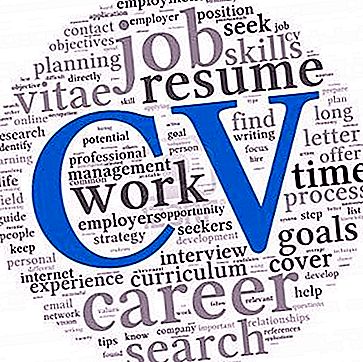Video: What is internal audit? 2024, July
Control at the enterprise is partially carried out by internal audit. It is this segment of the firm’s management that shows how reliable and efficient the process is. The internal auditor, a professional engaged in an impartial and professional assessment of the state of affairs of the company, exercises control. It is worth noting that one of the mandatory requirements of the Central Bank of the country is the presence of such a department in all financial institutions.
At the moment, internal audit is also carried out in companies not related to the financial sector. If there is such a department, the management of the company is always aware of how things are, the employee presents objective data on the basis of which serious decisions can be made. In addition, if the company has an internal auditor, employees more effectively fulfill their duties, as this specialist exerts a psychological and educational influence on them, controlling their performance. It also makes it possible to prepare well for an external audit.
General Provisions
The employee who is hired for this position is a specialist. To get this job, the applicant must obtain a higher economic or professional education. Employers also require special training and at least two years of work experience in the accounting field or one year as an auditor.

Only a company manager can hire or fire an employee. The internal auditor reports to the chief director of the company or his deputy. If the employee is absent due to a good reason, his duties are assigned to his deputy or any other appointed employee. At the same time, he assumes not only his functions, but also rights with responsibility as well.
Knowledge
An employee accepted for this position is required to know all the guidance and methodological materials that relate to the economic activities of the enterprise. He also needs to understand the market methods of carrying out activities, to understand by what principles the economy is developing, what are its features and patterns.
The certificate of the internal auditor assumes that he knows all the standards, methods and procedures associated with his direct activities. An employee must know the profile of his company, its specialization and structure. He must understand accounting, understand how accounting documents are compiled and what international standards are applied in the company.
Other knowledge
An employee holding this position is required to know by what methods the analytical activities of the economic and financial structure of the organization are carried out, how documentary audits and checks are carried out. The employee must have information on how the money flows in the company, whether there are loans and by what standards prices are formed in the market. In addition, the auditor knows how to organize and conduct business, how taxes are accrued.

The knowledge of the internal auditor should include financial, labor, tax and economic legislation, administration, marketing, ethics of business communication, organization of production, fundamentals of economics, management. The employee must be able to use communications, communications and computer technology, including a personal computer and specialized software.
Functions
The main function of the employee hired for this position is the internal audit of auditors. He must control the management and financial statements of the company, conduct its analysis, make sure that the information is reliable, timely compiled and at the right time come to the leadership. In addition, he is involved in the unification and standardization of accounting processes at the enterprise, prepares a plan and budget for the audit in the company, and provides it to senior management.
After approval of the plan, he carries out all the checks and revisions included in it, according to the previously drawn up schedule. Also, this employee monitors the implementation of the budget, checks the safety of assets and monitors the effectiveness of their use, monitors the leakage of information and does not allow employees whose financial competence is below permissible to access financial information.
Duties
It is also the responsibility of internal auditors to evaluate the expert type of contracts and projects. The employee holding this position monitors the completeness of the accounting data in the reporting of transactions and concluded contracts, as well as in documents recording the results of the company and its contractors.
He is obliged to identify the internal reserves of the company and determine how it is more efficient and profitable for the company to use them. The employee monitors the spending of funds attached to programs and projects. He analyzes the company's profits and expenses, optimizes and plans to pay taxes.
Other functions
A certified internal auditor is required to carry out selective audits to identify debts and shortages. It controls how efficiently and timely the company and its counterparties fulfill their obligations. The employee analyzes the payables and receivables, offers solutions to minimize them. He is engaged in the development of a recommendation plan aimed at eliminating the identified deviations in the work of the company.

During the implementation of new programs and projects in the company, the auditor determines the possible external and internal risks and analyzes them. Controls staff if their activities are related to the financial sector, conducts analysis of job descriptions and verifies the accuracy and efficiency of the distribution of responsibilities between employees. He can distinguish between powers, suggest that the personnel department make objective changes to the management documentation.
Other duties
A qualified internal auditor is required to develop financial regulations for the financial policy of the company and for its individual segments, procedures and instructions. In addition, the employee participates in the preparation of reporting documents related to consolidated and consolidated accounting, prepares the company for external audit.

The employee can also be authorized to temporarily or permanently perform other duties that are not related to the audit, for example, analyzing the investment project, maintaining the accounting department, reconciling data with suppliers and contractors. In addition, the internal auditor advises company management on the scope of his activities. An employee maintains accounting documentation, provides reports and analytical data to superiors, prepares expert opinions and the like.
Rights
The CIA internal auditor has the right to access all departments of the company, as well as request all the necessary information for the audit. He has the right to give employees of the company binding orders that relate to their activities, in particular, bringing documents of an internal type to a reporting form that complies with applicable standards and laws. He may oblige the staff to correct all errors and inaccuracies, as well as take measures to correct the identified deficiencies. If questions arise during the audit and revisions, the employee has the right to request explanations from the employees responsible for this.
Other rights
He has the right to instruct employees to begin preparations for an external audit, to offer management informed proposals aimed at changing the control system in the company. In addition, he may propose a change in management policy in the company.

The job description of the internal auditor assumes that he has the right to get acquainted with documents directly related to his activities, including instructions, a list of duties, criteria for evaluating his working efficiency and others. He can also submit to the authorities for consideration proposals for the conduct of activities that allow to make the fulfillment of his duties more perfect. In addition, the employee has the right to receive from the management the full provision of technical and organizational conditions necessary for him to work.
A responsibility
The employee is responsible for the improper performance of his functions assigned to him by the company, in accordance with the current legislation of the country. He can be held accountable for administrative, labor and criminal offenses committed in the course of fulfilling their duties. And also for causing material damage to the company in the framework of the current legislation of the country. He is responsible for disclosing confidential information and exceeding his authority, as well as for using them for personal purposes.
Training
Legal entities and individuals have the right to carry out audit activities if they have the appropriate license for this, the so-called certificate of internal auditor. In order to get it, you must have a legal or economic education, as well as experience in the field of audit. In addition, you will need to pass additional exams to obtain the required qualifications. There are currently four types of certificates. Most often, employers are interested in applicants who have received a certificate of general audit. But there are cases when specialists of a narrower circle are needed - these are banking, exchange, insurance and investment auditors. Training of internal auditors is carried out in special centers.
Candidate Requirements
Employers really appreciate employees who have good communication skills, because they have to work with company staff and solve issues that cannot always be resolved without conflict. It is very important that the applicant for the position is able to coherently express his thoughts both orally and in writing. Indeed, only in this way will he be able to convey to the staff what exactly is required of him, and to the superiors to report on the current situation and transmit important information.

The employee must be able to defend his point of view, because in the course of his work he will have to prove that another person is to blame for the problem he has identified, and he must fix it. An insecure auditor is unlikely to cope with his duties, because he will not be able to convict unscrupulous employees, his audits and checks will not lead to anything, he will not be able to prove to the authorities about the appropriateness of certain actions to solve the current situation.
He must be able to plan his day on his own, that is, to have a high degree of self-organization, because as such no one makes control over him. The employee must set tasks for himself and perform them. Employers usually give preferences to applicants with an analytical mindset, without this criterion it is doubtful that the employee will be able to fully carry out their professional activities.
Employee Tasks
Like the external, the internal auditor must conduct independent reviews of all processes in the firm in order to analyze and evaluate them. It ensures compliance with internal documentation and financial transactions conducted in the company, in accordance with the current legislation of the country. In addition, he checks and ensures the accuracy of the financial and accounting statements of the company. His tasks include reducing tax waste, monitoring the availability and preservation of company assets, assisting managers and administrations in managing human resources.
Conclusion
The result of the internal audit is not only preparation for the external, but also recommendations: how to increase efficiency and rationalize the work of the company, organize subsequent monitoring of personnel. When it is necessary to conduct an audit, the chief director determines, based on the company's turnover, management structure, activities, the amount of human resources and other factors.

If the company has at least four departments and there are several accountants, then the feasibility of an internal audit is undeniable. It will help reduce the costs of the company in an external audit. If we are talking about large companies, then they hire not one employee, but a whole department headed by this professional. Its staff may include a wide variety of specialized specialists, depending on the work that they have to carry out. Thanks to such an employee, the productivity of all other employees increases, profit increases.






